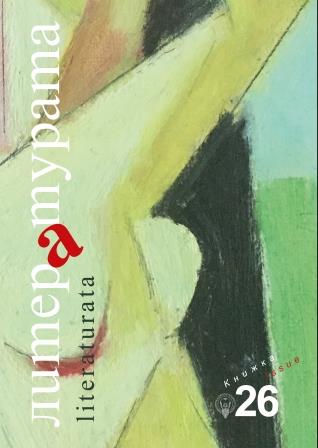Литературна история, формиране на полета и транснационални пространства на възможности. Литературата в пространството на Беларус през 1920-те
Literary History, Field-Formation and Transnational Spaces of Possibles. Literature in the Space of Belarus in the 1920s
Author(s): Gun‑Britt Kohler, Pavel I. NavumenkaSubject(s): Language and Literature Studies, Studies of Literature, Belarussian Literature, Philology, Theory of Literature
Published by: Софийски университет »Св. Климент Охридски«
Keywords: Literary Historiography; Belarusian Literature; Twentieth Century; transnational; field borders; literary institutions; literary groups; Space of possibles; Zmitrok Bjadulja
Summary/Abstract: As a literature that develops in the historically multi-ethnic and multi-confessional transitional space between Slavia latina and Slavia orthodoxa, the literature of Belarus challenges the validity of the “grand narrative” in a special way. At the same time, as a “small” literature, the development of which has taken place over the centuries and until recent times in the spheres of dominance of neighboring “bigger” literatures (Russian and Polish), Belarusian literature seems to reveal some problems of a transnational approach, which perpetuates mechanisms of exclusion and absorption. Based on these considerations, the article first outlines an alternative approach for a “grand narrative” based on the parameters of cultural space, open chronology, and institutional development. Within the framework of this model is then systematically examined the transnational potential of Belarusian literature from an institutional perspective, using literary development in the 1920s as an example. This shows that the transnational potential resulting especially from multilingualism is superimposed institutionally and ideologically by the concept of the “multi-nationality” of proletarian literature, with different languages pre- structuring different “Spaces of possibles.” The realization of transnational spaces of possibles seems to be open above all to Jewish authors, as the case study on Samuil Plaŭnik (Zmitrok Bjadulja) shows.
Journal: Литературата
- Issue Year: XV/2021
- Issue No: 26
- Page Range: 33-81
- Page Count: 49
- Language: Bulgarian
- Content File-PDF

